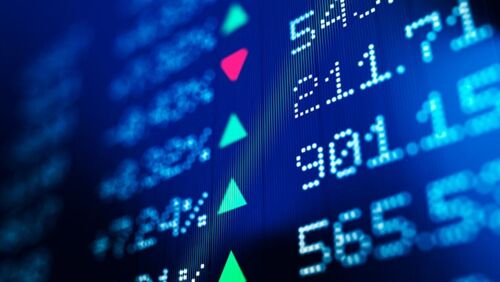Where to invest $10k: Danielle Ecuyer
By Danielle Ecuyer
If you're fortunate enough in this swirling economic environment to have been able to put aside some spare cash, it may be an overwhelming proposition deciding just exactly what to do with it.
At a moment in time marked by global COVID outbreaks, war and climate change fuelling a struggling sharemarket, falling house prices and rising energy bills, we don't blame you.
Thankfully, though, there are sage and steady voices amid the noise, eight of which have lent their wisdom to this series: Where to invest $10k.
Where should a beginner investor put their money?
The most important aspect for beginners to consider in investing is a process and a journey.
Experience and achieving a greater appreciation of one's risk tolerance, patience and emotional traits will assist you over the longer term in making more informed decisions.
No matter what stage of investing you are at, the first thing to assess is how much time and effort you want to commit, bearing in mind that markets are ever changing and evolving.
For a beginner, I always suggest a good starting point is investing indirectly through a one-size-fits-all financial product, such as an exchange traded fund (ETF).
An ETF offers exposure to a basket or group of companies (shares) that reflect an index, such as the S&P/ASX 200 (the top 200 shares listed in Australia) or a theme such as quality shares, decarbonisation or cybersecurity.
An ETF is one listed share (entity) that you can buy and sell on the sharemarket that represents an underlying group of shares. The product removes the need for beginners to make the more challenging decisions of direct stock picking and different price levels.
But a new investor does not have to rely solely on ETF products; they can evolve as their experience grows with their savings and over time develop the confidence to select and invest directly in individual shares.
The key difference between an ETF and buying a share directly is you are concentrating your investment risk into one company when you invest directly in individual shares.
Where are we now in the cycle?
In the later part of 2022, selling across global equity markets, including Australia and the US, means investors are being offered much more attractive price entry levels.
The first lesson for beginners is that timing the markets is, for most people, very challenging.
Therefore, investors should look two to three years out with the risks of earnings recessions continuing to potentially weigh on share prices over the short term and bear market volatility (falling and rising share prices like a roller-coaster) causing a lot of fear.
Beginners should not try to focus on trading the markets - as many newcomers have discovered, it is not as easy as it may seem in bull markets, such as 2020-21.
Investing one's savings for the medium to longer term will allow the companies to grow earnings and dividends, which - all things being equal - will generate not only capital appreciation in the share price, but also growth in dividend income.
My preferred stocks to buy are normally in the quality category, with a proven track record, strong cashflows, dividend growth and a robust balance sheet as well as a solid competitive advantage.
Quality companies exist across all sectors, from consumer discretionary (consumer products) to cyclicals (banks, resources, housing) and defensives (healthcare).
Where I would invest $10k
I would focus on quality companies with resilient cashflows, strong balance sheets and the capacity to generate dividend income growth or share buybacks, such as large-cap stocks like CSL, Telstra, BHP, Woolworths and Commonwealth Bank.
In the technology sector, WiseTech Global and TechnologyOne are favourites, and data centre developer and operator NextDC.
Other favourites to buy on weakness are ProMedicus, REA, Carsales and Seek.
However, when central banks pivot - move from a tightening bias (raising interest rates) to a loosening bias (cutting interest rates) - the stocks that will rally the most will be cyclical companies, such as James Hardie (housing), Temple and Webster and Wesfarmers (consumer discretionary) and Goodman Group and Charter Hall (property).
In the US, I continue to like the secular growth themes in decarbonisation, the cloud migration and cybersecurity, with names such as Google, Amazon, Apple, Tesla, Enphase Energy, Palo Alto and CrowdStrike. Quality technology stocks I like are healthcare and pharmaceutical stocks such as Eli Lilly and UnitedHealthcare.
Consumer stocks and retailers like Nike, Costco, Home Depot are also on my list. Asset managers including BlackRock and Blackstone, as well as Morgan Stanley, and software companies, such as Intuit and Salesforce.
Get stories like this in our newsletters.



